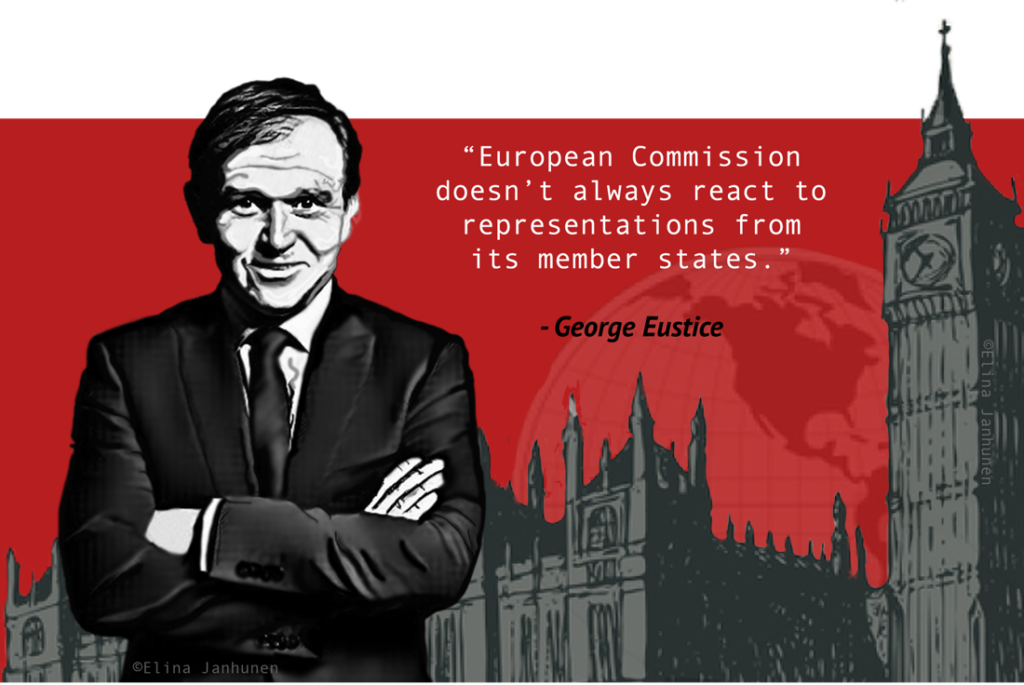“European Commission famously doesn’t always move or react to democratic representations, even from its own member states”, said UK’s Secretary of State for Environment, Food and Rural Affairs George Eustice (Conservative Party) on the 25th of March 2021 in an article about EU ban on UK shellfish published by the BBC. The statement is uncheckable.
The term “democratic representations” sounds official. The Oxford Dictionary’s definition for the word representation is: “formal statements made to an authority, especially so as to communicate an opinion or register a protest.”
In other words, Mr. Eustice was saying there is an official way to make a representation by the EU member states for the European Commission, but the Commission systemically ignores some of the representations. For us it seems that Mr. Eustice´s claim is connected to the tensed trade relations between the EU and the UK. We still thought it was definite enough to fact check.

Graphics by Elina Janhunen/Haaga-Helia University of Applied Sciences
But how the decision making in the EU works is not quite that simple. We contacted several people working for the EU and none of them could give a direct answer for what kind of representation Mr. Eustice could be talking about.
Pekka Nurminen, Head of Unit in the European Parliament, wrote into an e-mail: “I think that [Mr. Eustice’s] choice of words is intentionally misleading — it is not possible [for Mr. Eustice] to refer to anything concrete, as it would expose it to so called fact checking.” We also asked for Mr. Eustice´s own input to what he might have meant with the claim. We received an automate replied e-mail that promised an answer within fifteen working days. We still haven’t got a reply, although the time period expired.
The EU Legislative Procedure
The European Commission holds a great influence on decision-making in the union, as it has the initiative to prepare and propose legislation. The European Parliament (elected by EU citizens) and the Council (consisting of ministers from member state governments) can make further amendments to the proposals and have the final authority to pass the laws. But how does the Commission decide which legislation to pursue? This process doesn’t seem transparent.
According to the European Commission Press Office in Finland there are many professional lobbyists working in Brussels, and they all promote their interests. EU citizens have the right to gather and give their own proposals through the European Citizen’s Initiative. There are also other possible parties that can make suggestions for the Commission, for example European Central Bank. Anyhow, European Commission´s duty is to consider the overall interest of the European Union when proposing new legislation.
Conclusion: Uncheckable
In this light, the claim of the European Commission ignoring “democratic representations” is uncheckable. It is simply not possible to define what kind of representations Mr. Eustice meant.
Leave your comments, thoughts and suggestions in the box below. Take note: your response is moderated.
RESEARCH | ARTICLE © Henna Inkinen, Elina Janhunen, Jarno Kajova, Sanna Salmi. Haaga-Helia University of Applied Sciences, FI





